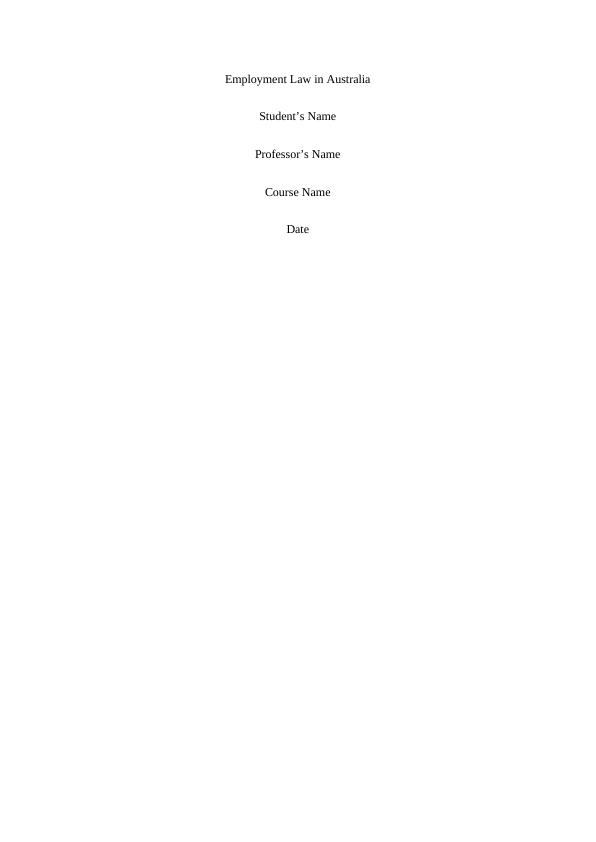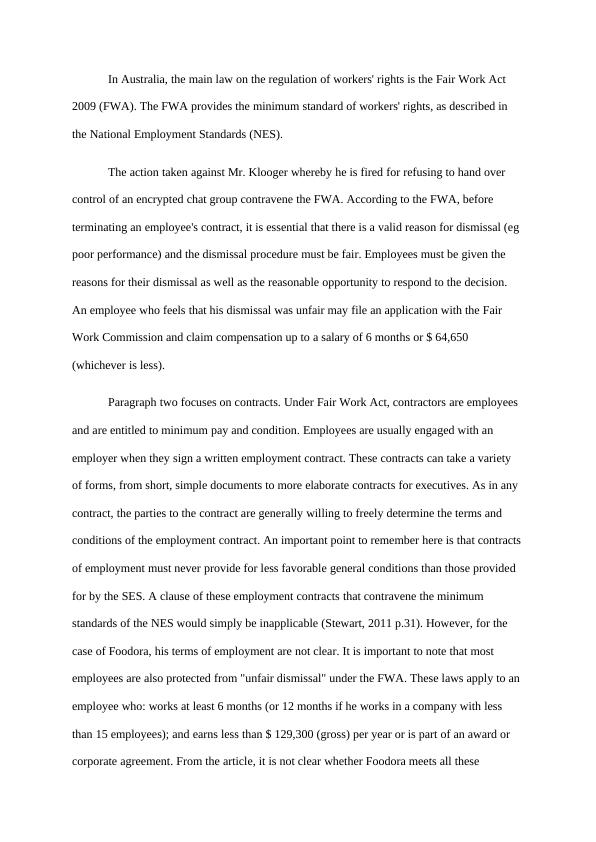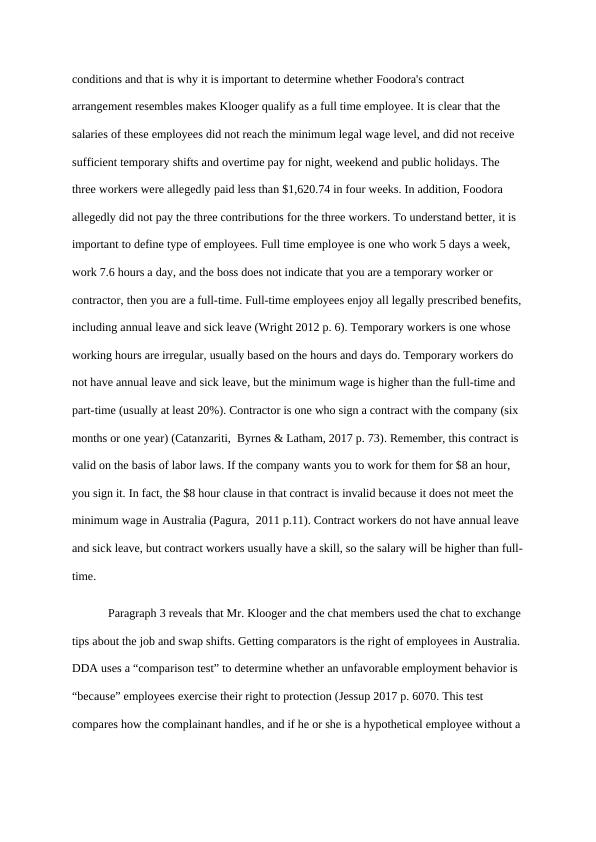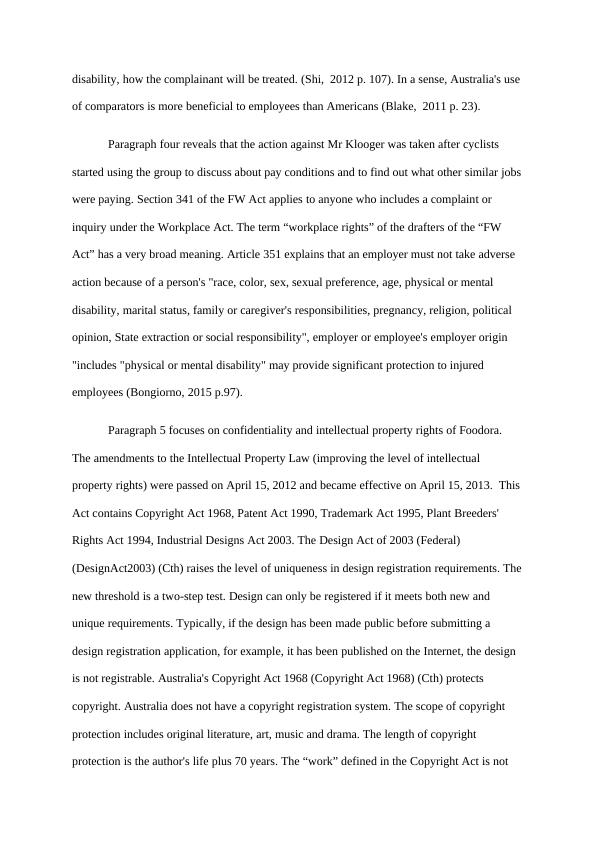Employment Law in Australia: Fair Work Act and Workers' Rights
This assignment is a group assignment worth 30% of the total grade. It consists of two questions, each worth 15%. The maximum word limit is 3,500 words. The marking criteria include clear identification of legal issues, demonstrated knowledge and understanding of the law, description of legal sources and facts, logical structure, and use of English language with care and accuracy. Group members must agree to receive the same mark for the assignment and cannot apply for different marks. The assignment requires a cover sheet with all group members' names and student numbers. One electronic copy must be submitted for each group.
Added on 2023-06-07
About This Document
Employment Law in Australia: Fair Work Act and Workers' Rights
This assignment is a group assignment worth 30% of the total grade. It consists of two questions, each worth 15%. The maximum word limit is 3,500 words. The marking criteria include clear identification of legal issues, demonstrated knowledge and understanding of the law, description of legal sources and facts, logical structure, and use of English language with care and accuracy. Group members must agree to receive the same mark for the assignment and cannot apply for different marks. The assignment requires a cover sheet with all group members' names and student numbers. One electronic copy must be submitted for each group.
Added on 2023-06-07
End of preview
Want to access all the pages? Upload your documents or become a member.




